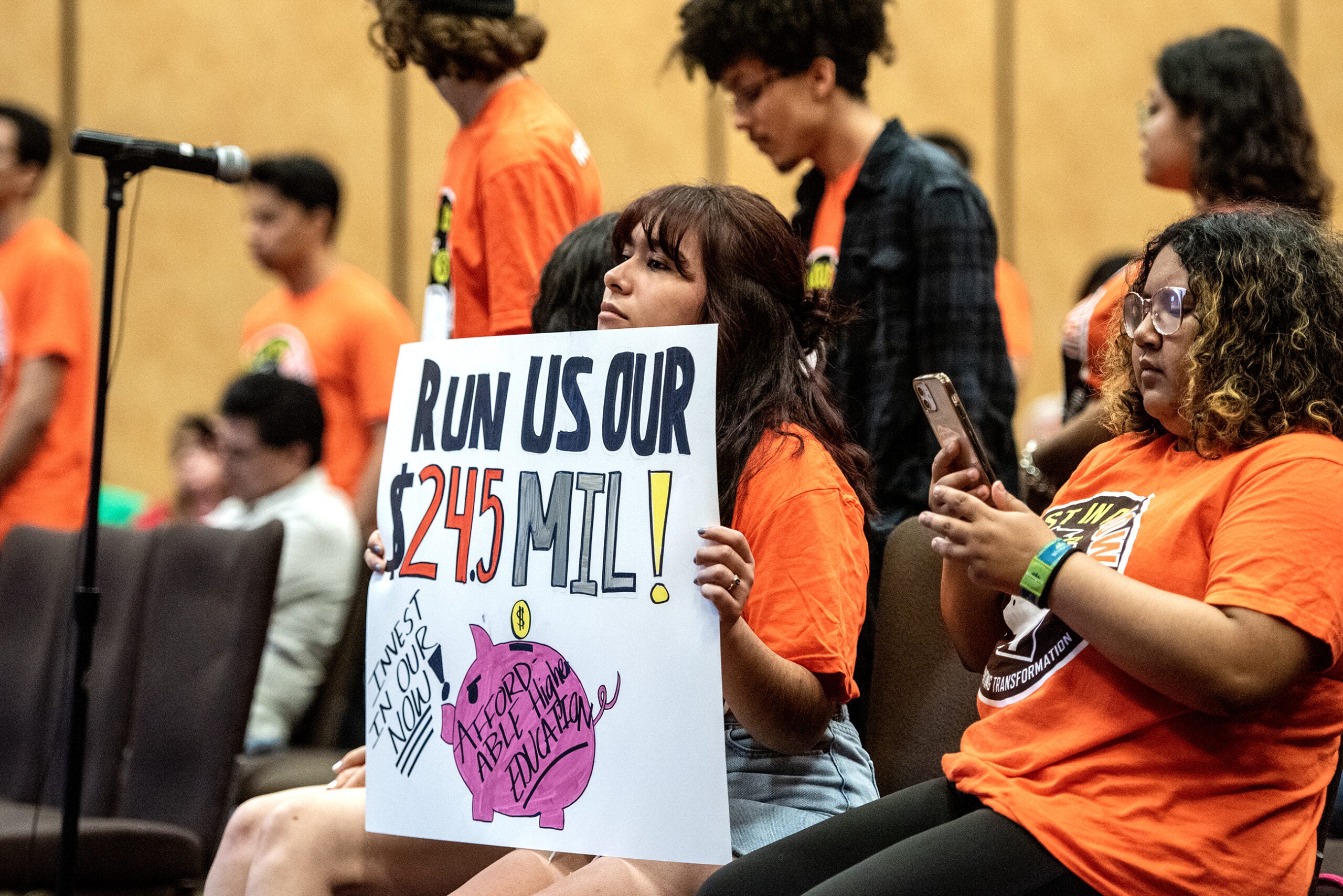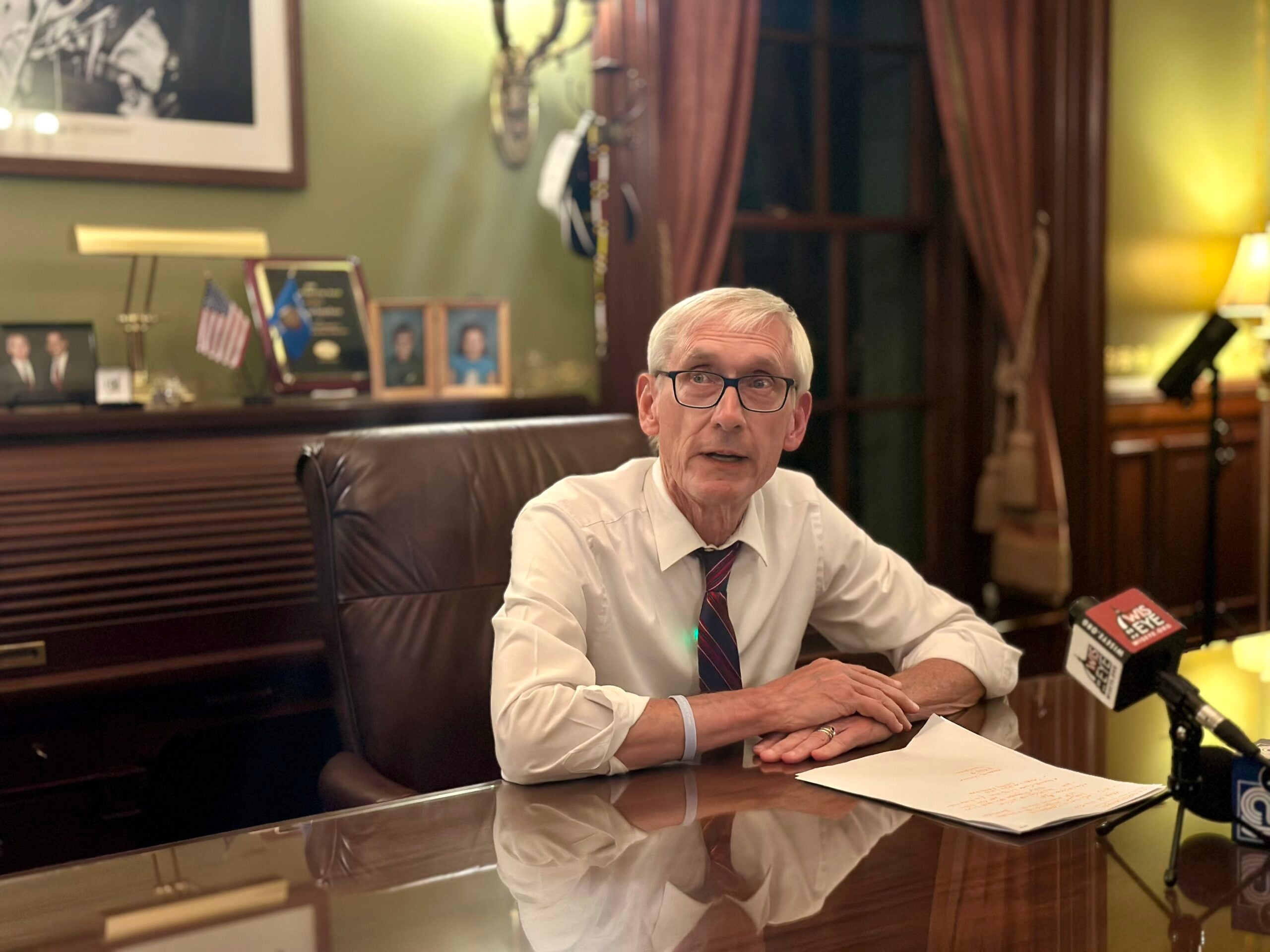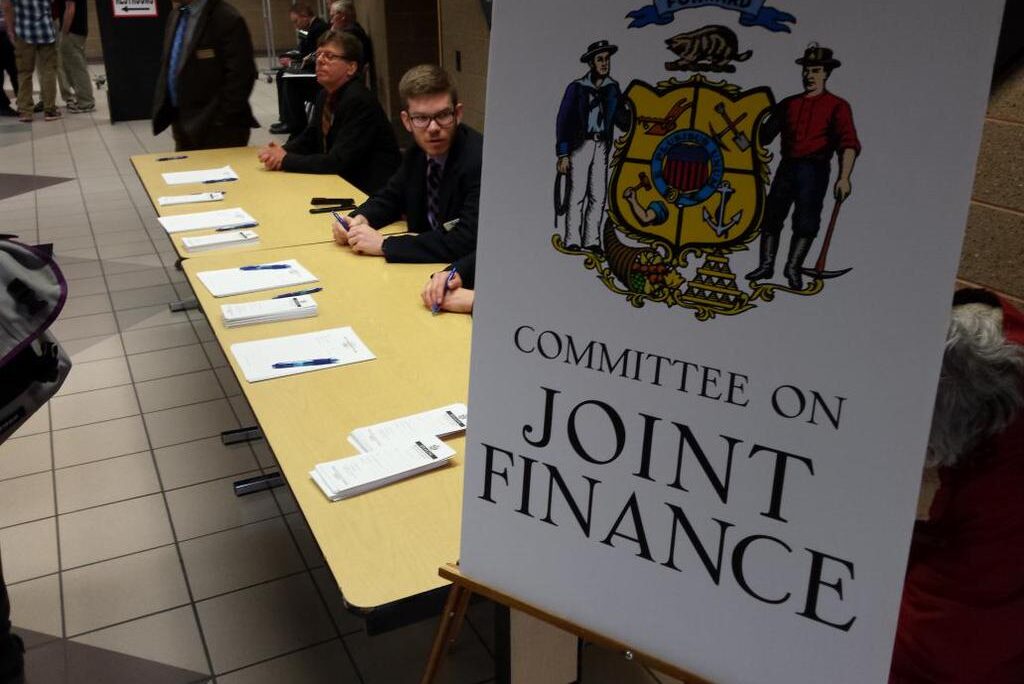Health care and education emerged as top priorities for citizens who shared concerns at a public hearing before the Legislature’s budget committee on Wednesday.
It was the third such public listening session hosted by the powerful Joint Finance Committee, where Republican lawmakers have promised to write their own version of Gov. Tony Evers’ budget proposal.
One by one, individuals and groups approached the microphone at the Wilderness Resort Glacier Canyon Conference Center in Wisconsin Dells to ask the committee to include funding for a diverse set of issues and programs Evers included in the biennial budget.
News with a little more humanity
WPR’s “Wisconsin Today” newsletter keeps you connected to the state you love without feeling overwhelmed. No paywall. No agenda. No corporate filter.
As in previous listening sessions, school funding was a central concern of many participants. So was support for health care programs, including mental health care and programs for caregivers.
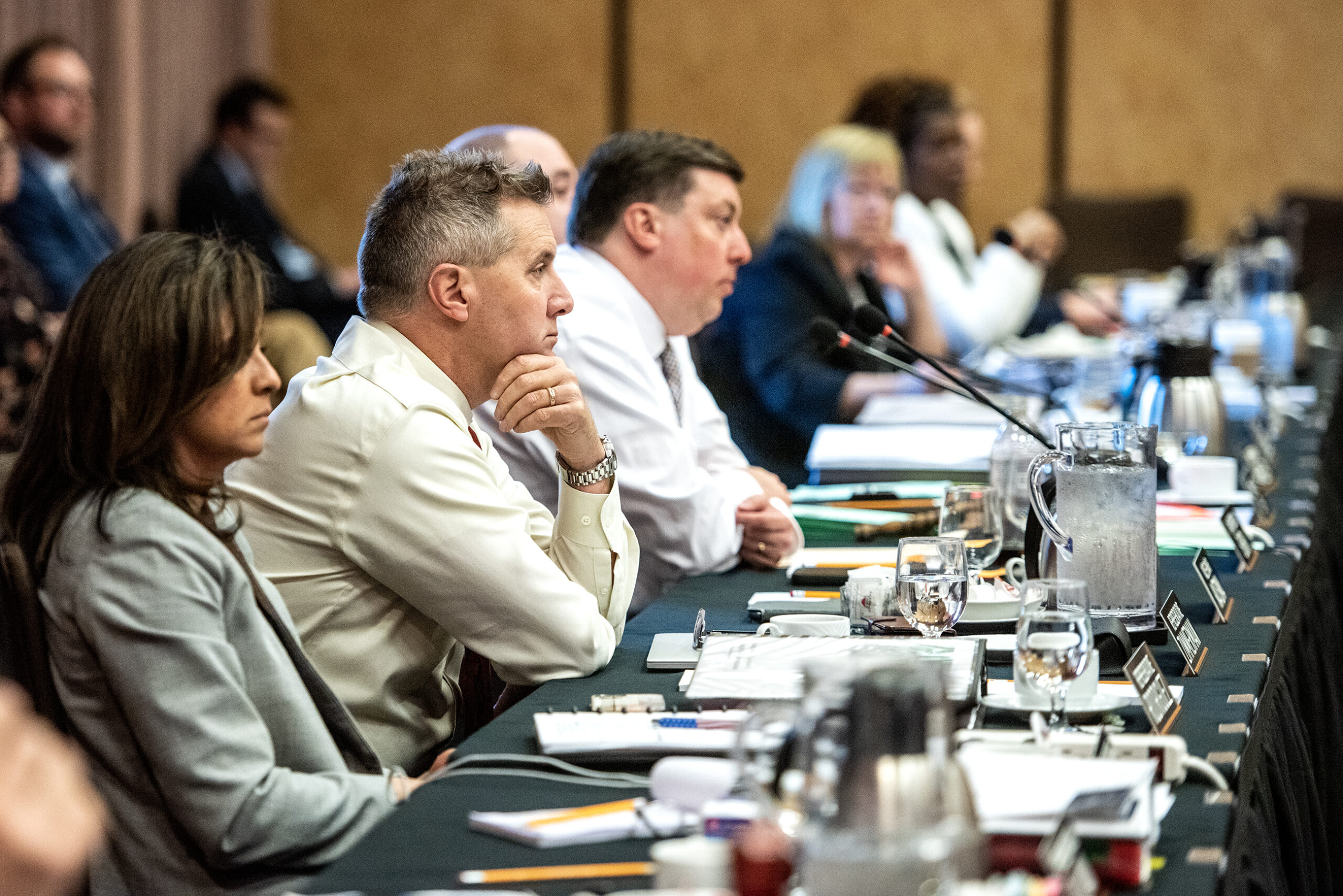
Several speakers advocated for an increase in funding for health clinics that serve low-income people.
Danine Casper, of the Wisconsin Association of Free and Charitable Clinics, said need is increasing as the national COVID-19 emergency is lifted and people’s access to Medicaid shifts.
“Our clinics are seeing a significant increase in patient volumes, stressing our systems and their capacity to effectively respond without additional financial support,” she said. “This will only worsen as the unwinding process continues throughout 2023.”
Others spoke out for increased funding for mental health care, including Anastasia Heckendorf of Baraboo, who called for funding for mental health needs that specifically serve people who are deaf and hard-of-hearing, such as funding providers who speak American Sign Language so that deaf patients don’t need an interpreter for counseling.
“Can you imagine what it’s like to have a third person as an interpreter…be part of those services, because you cannot communicate directly in your primary language?” Heckendorf asked lawmakers.
Evers has declared 2023 the “Year of Mental Health” and proposed millions in funding for mental health care and substance abuse services, including $270 million for students.
Advocates from AARP Wisconsin praised Evers’ tax credit for people who provide care to family members. Speaking on behalf of the group, Mike Flaherty said that about 580,000 Wisconsinites fall into that category, providing some level of care, including “cooking, cleaning, bathing, dressing, shopping, scheduling, driving appointments, paying bills, managing medications and even wound care” to a loved one.
“This isn’t an urban versus rural, or a partisan issue,” he said. “It’s a long-term care issue that impacts all of us.”
Gov. Tony Evers’ budget proposes a tax credit for such caregivers of up to $500 for most filers, covering half of qualified expenses, for people who qualify by income. The budget includes other caregiver provisions, including increasing family care funding overall, investing $88.8 million for the professional caregiver workforce, and adding half a million dollars in community funding for caregiving for people with Alzheimer’s.
About two dozen student activists with the organizing group Leaders Igniting Transformation spoke in support of a proposed $24.5 million investment in a tuition grant program for low-income students. For nearly half an hour, the students — outfitted in bright orange T-shirts that read “Invest In Our NOW” — shared personal stories of struggling to afford higher education.
“My biggest goal … is to inspire others to achieve their dreams. To set the precedent to make my people proud,” said Génesis Santos Torres, a University of Wisconsin-Stevens Point student originally from Puerto Rico. “I won’t be able to achieve that if I can’t afford it.”
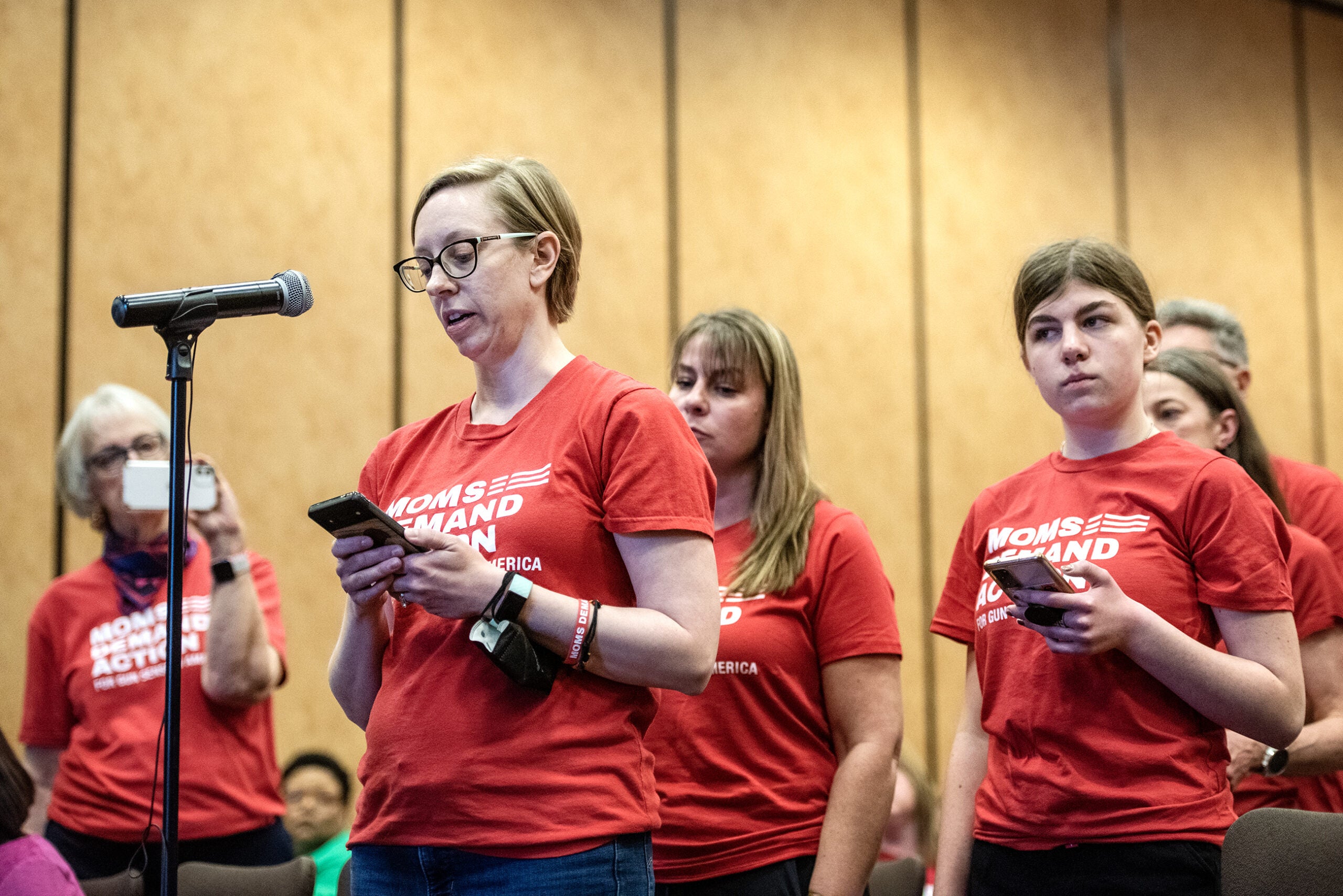
Two weeks after a deadly school shooting in Nashville, Tennessee, advocates from gun violence prevention group Moms Demand Action spoke in support of a tax exemption for firearm safety mechanisms, gun suicide prevention measures and a community safety fund. Evers’ budget proposes providing $7.5 million to the Medical College of Wisconsin for the Wisconsin Community Safety Fund, which provides violence prevention grants.
Lindsey Buscher, of Madison, called the tax exemption for gun safes, trigger locks and barrel locks “what has to be the easiest, most bipartisan thing that you could all possibly agree on.”
“This is a simple effective incentive that would encourage safe, secure and responsible firearm storage — locked, unloaded and away from separately locked ammunition,” she said. “This is not a Democrat or a Republican issue, and it’s something every gun owner should value.”
Throughout the day, speakers advocated for a wide range of issues, including innovation grants for tech startups and small businesses, public funds for the Special Olympics and drivers licenses for immigrants lacking permanent legal status.
Gov. Evers’ proposed budget is likewise diverse, proposing $104 billion for a wide range of services and programs. Legislative Republicans have criticized the wide scope of that proposal, with Assembly Speaker Robin Vos, R-Rochester, saying it could leave the state in financial ruins for future budgets.
There will be one more public hearing at 10 a.m. on April 26 at Lakeland Union High School in Minocqua. After that, the Joint Finance Committee will begin to rewrite the budget before presenting its version to the Legislature, which will eventually send it back to Evers’ desk.
Wisconsin Public Radio, © Copyright 2025, Board of Regents of the University of Wisconsin System and Wisconsin Educational Communications Board.

